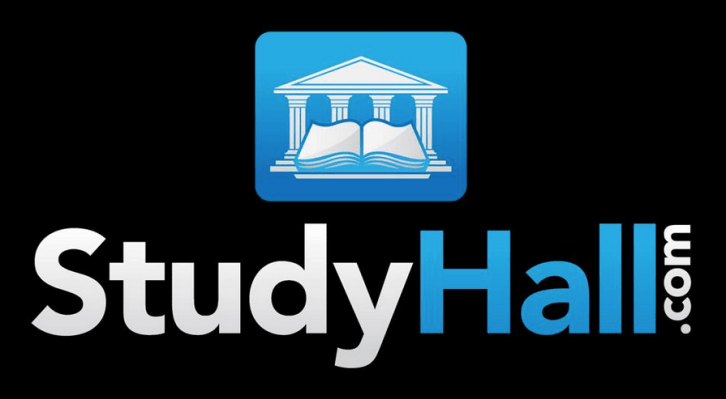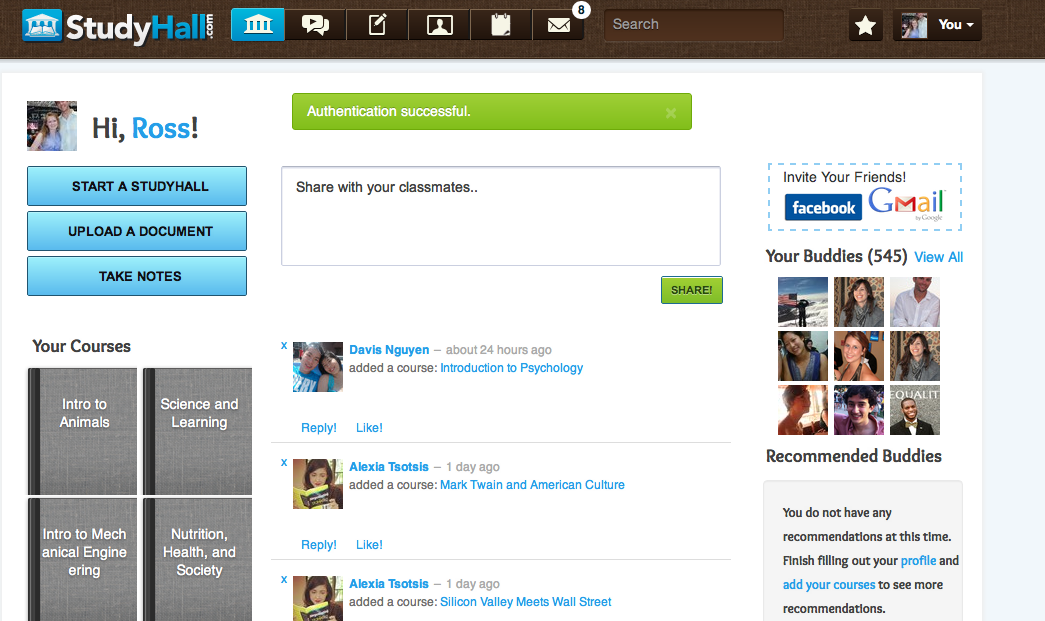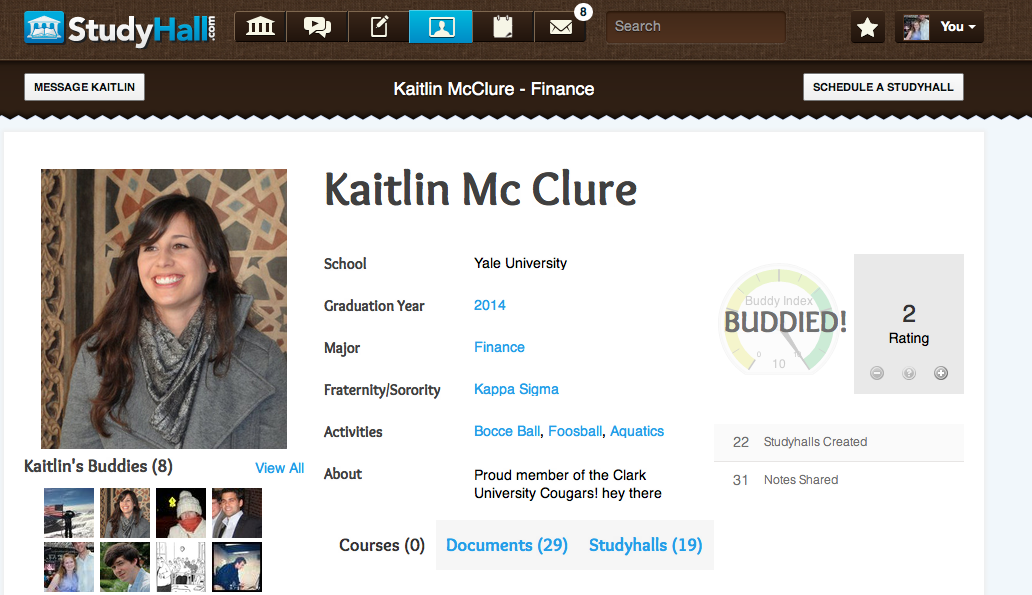Studyhall, which launches at TechCrunch Disrupt SF today, is a peer-to-peer platform and network that is built specifically for students. Sorry, teachers, it’s not for you. Yet.
A number of startups have emerged in the last year looking to dethrone the old guards of higher education technology, like Blackboard. Yet, while many educational platforms are limited in what they offer students, focusing instead on building tools for educators and teachers, one startup is taking an alternative (or, in its own words, “populist”) approach.
The startup believes that it can do just as much to benefit the learning process and boost student retention and performance by focusing its efforts on providing them with an educational platform that offers live, interactive studying and sharing.
You might think of Studyhall as a “Yammer for students,” as Studyhall founder and CEO Ross Blankenship tells us that the idea for the company grew out of his experience as a student and the perceived frustration among his peers with how difficult it remains for students to find their classmates, connect, study and collaborate on assignments without using one hundred different channels. Really, students don’t have a network or tool that they love to use that is academically-focused but not buttoned-up (overseen aggressively by teachers), etc.
So, the team set out to build a social platform that gives students the ability to take notes in class, submit homework assignments and collaborate on projects in real time through live audio and video chat. Of course, naturally Studyhall wants to go beyond Yammer’s social realm to create a tool that facilitates student networking (like a collegiate LinkedIn) that combines with a student marketplace, a la Craigslist or Amazon.
When a student signs up for Studyhall and creates their own profile, they can add the courses they’re currently taking or slated to take over the course of the year and buy eBooks and traditional and digital textbooks directly. This is where we see the first glimpse of the startup’s business model, as it plans to use its content and textbook marketplace as a tool for lead-gen, grabbing a percentage of each sale when a student purchases a textbook from Amazon or Chegg, for example.
The startup is hoping to build a reservoir of student profiles that contain course, major, educational interests and future employment plans. Studyhall is looking to build partnerships with recruiters to connect them with students looking to go into specific fields, etc. And based on data it collects on how students interact with each other and behave academically, the startup wants to become a resource for other companies that can turn the data into studies and tools that help boost achievement and work more effectively.
There are other potential business models and value propositions we might see from Studyhall in the future. The CEO says that, based on what they’ve seen during beta testing, students are dying for a local peer-to-peer marketplace where they can sell books, notes and any documents that might help each other study.
It sounds a bit like it’s got the potential to become a black market for CliffsNotes, but it does provide students with a legitimate way for those who actually study and stay organized to get paid for helping their peers get up to speed. The CEO says that he’s confident based on early users’ adoption, as the average student has uploaded between 10 to 15 documents and the majority have begun using the “Sell Books + Notes” feature.
Blankenship also thinks the startup’s biggest opportunity could come from an enterprise model, wherein sites like Khan Academy, Coursera, EdX, etc. would be able to use a white-labeled version of Studyhall to further engage students outside of their virtual classrooms. Many of the sites are struggling to prevent student dropout rates, and a user-friendly, student-focused peer-to-peer communication network could help them boost student retention.
The startup could also benefit from adding an API, which the founder thinks could be a key addition by allowing developers to sell education apps through the site — flashcard, note taking apps, all sold under the umbrella of Studyhall.
So far, the startup says that students are staying logged-in to the platform for more than 2.5 hours/day on average, which is an encouraging sign at this early stage. Also great to see that the engineering team itself is composed of college students — from Harvard, Yale, Georgetown, MIT and Cornell — which means UI and UX decisions are being made by those who are students themselves.
Studyhall has some stiff competition in the student networking and communication space from the well-funded ed hackers at Lore, but with a pure student focus and a deep, trustworthy P2P marketplace (not dominated by torrents), there’s a lot of opportunity and room to bring the market something unique as it begins the school year in 25 colleges in the U.S.
For now, Studyhall is sticking to student-only, until professors realize where their students are really collaborating about a certain class. So, the startup will likely give professors access to class pages as well as offer the ability to hold office hours inside the platform at some point soon.
For more on Studyhall, find it at home here.
Q&A With Panel of Judges
Question from Ellen Levy, LinkedIn: In terms of the functionality, I like it … But why would everyone participate? I get it in that it seems you have a lot of monetization opportunities and why the person who’s falling behind and needs help help would want to be on Studyhall, but what about the smartest students … assumed social dynamics?
A: We want to let developers and app developers help create products for all proficiencies, so we’re building out an API, so that people can build study guides, etc. We’re hoping to build enough of a platform and deep user experience that there are incentives that both allow those performing well and those who are falling behind to participate and get a lot of use out of it.


